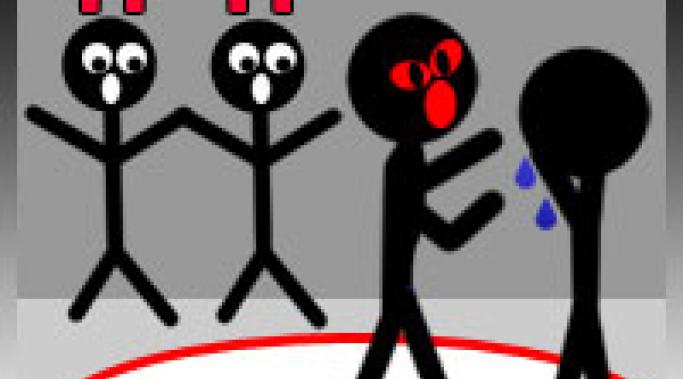Personality refers both to who you are at your core and how others perceive you to be. Personality is a slippery word because it includes both what you feel to be true about yourself and what other people think about you - your thoughts that lead to emotion (invisible) and behavior (visible).
So, on the one side of personality, we have the invisible core of "who you are" as defined by you. On the other side of personality, we have the visible version of you as defined by other people. Gurus say that "authentic people" are those who say as they do and do as they say. In effect, the goal of authenticity is to project your definition of yourself to everyone else consistently, and align the invisible with the visible.
Verbal Abuse in Relationships
After the emotional abuse, or rather, after I left my abusive husband, I hoped the effects of abuse would disappear. Magically. Without any work from me.
Those hopeful feelings minimized the difficulty of coping with life and relationships after emotional abuse. The intelligent part of me knew that after the emotional abuse it would take time to recover from the emotional trauma and regain my mental health. Alas, the intelligent part of me was correct.
I've often wondered if the effects of abuse changed who I am permanently or temporarily. I run into trouble with this question because I was in the abusive relationship for almost half of my life. If I compare myself to how I was at 20-years-old (after I married him), I'm not sure I can answer that question. After all, in any normal relationship I would naturally change across the span of two decades.
When I left my marriage, I severely mourned the death of my relationship. My mourning for the fantasy relationship was as real as any grief I've ever felt. The grief was so real it led me to delude myself about the truth of my abusive marriage. Will, my husband, wasn't all bad, was he? Maybe our separation would scare him straight, maybe our recent civil conversations heralded a new beginning for us, maybe this was all a bad dream.
Through much of our conversation together, we've discussed setting boundaries and telling your abuser what you will and won't do when she behaves abusively. Today, I want you to realize that the words you speak are for you only. Your abuser doesn't listen to them anymore than she listens to anything else you say.
Some of you are reading this to receive validation that there is no way possible to leave your abusive relationship. If you're looking for someone else to agree and say, "Why by God, you're right! You are stuck!" then you are a victim and you are absolutely correct.
Does that help? Do you feel any better hearing me say that your situation is hopeless? There's no hope - your abuser wins. Go sit over there, sigh, and wait for the next episode of abuse. Feeling better yet?
The last post offered insight into how to help your friend's wife who says she's being abused. This is the second email from a man who finds himself in that exact situation:
"The first time she and I talked, she asked that I not tell anyone and then said, "Do you think I am stupid?" That broke my heart. I replied, "You are a brilliant, kind person," and that put a smile on her face. I set out to help her build self-esteem.
"I email her every day with verbal abuse information. She doesn't send much of a reply back, so it is hard to know if she will take some type of action. Should I not email her anymore and hope that she gets help? Should I keep giving her advice and just hope that she does something about the abuse? To what degree do I detach myself?"
Recently I received an email from a man who asked a very good question. He said,
"A friend's wife opened up to me about what I think is verbal abuse. She is talking about leaving him if things don't change, but she's afraid her kids will hate her for leaving their father and their million dollar home. His wife has such a big heart. She's really a wonderful person. I want her to be happy. I am very surprised to know that my friend, such a nice guy when he's with me, abuses his wife this way. What can I do to guide his wife down the right path?"
Does cheating on your abuser help you to cope with their abuse? Does a new love help you to heal? There is a little bit of truth in answering "yes," but there's more truth in a big fat "no."
Verbal abuse books helped me discover that my marriage problems were rooted in verbal and emotional abuse. I felt relief because up until I read the library of verbal abuse books available, I thought that I was losing my mind. My abusive husband had almost convinced me that every problem in our marriage was my fault. He said I was inept and out of touch with reality.
The verbal abuse books taught me that my husband was wrong. But more importantly, the verbal abuse books taught me the vocabulary of abuse so I could finally describe what was happening to me.









